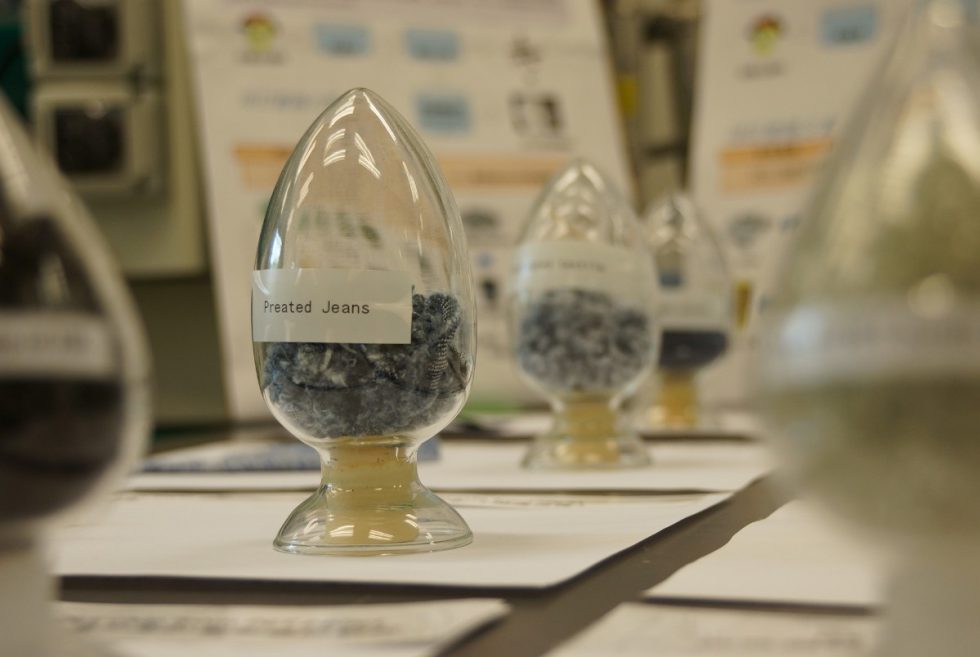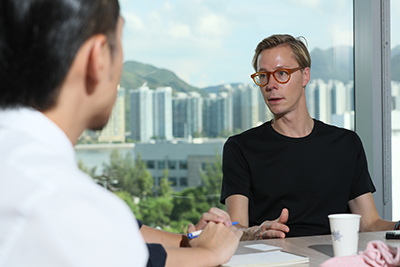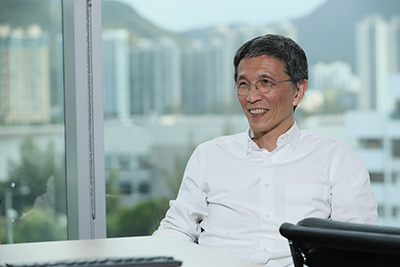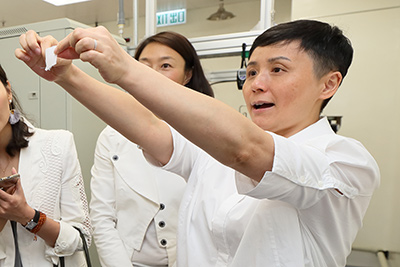Within a four-year innovative partnership the non-profit H&M Foundation and The Hong Kong Research Institute of Textiles and Apparel (HKRITA) has announced ground-breaking solutions to recycle blend textiles into new fabrics and yarns – without any quality loss – through a hydrothermal (chemical) process. The technology will be scaled up and made available to the global fashion industry. The finding is a major breakthrough in the journey towards a closed loop for textiles. The partnership commenced in September 2016, part of H&M Foundation´s commitment within its focus area Planet, where all initiatives have the aim to safeguard not only the planet but also the living conditions for people and communities around the world. The aim of the ‘Closed-Loop Apparel Recycling Eco-System Program’ is to find at least one ready technology to recycle clothes made from blend textiles, within the four-year project period.

“For too long the fashion industry has not been able to properly recycle its products, since there’s no commercially viable separation, sorting, and recycling technology available for the most popular materials such as cotton and polyester blends. This very encouraging finding has the potential to change that. We are very excited to develop this technology and scale it beyond the laboratory, which will benefit the global environment, people and communities,” says Erik Bang, Innovation Lead at H&M Foundation.
The partnership in Hong Kong is backed by an estimated 5.8 million euros of funding, with HKRITA conducting the research and work to commercialise the outcomes. The Innovation and Technology Fund of the Hong Kong SAR Government also provides additional substantial funding and support. The total project investment is estimated to around 30 million euros during the four-year collaboration (2016-2020), which makes it one of the biggest and most comprehensive efforts ever for textile recycling.

One year into the partnership, HKRITA has together with Ehime University and Shinshu University in Japan, successfully developed a hydrothermal (chemical) process to fully separate and recycle cotton and polyester blends. The recovered polyester material can be reused directly, without any quality loss. The hydrothermal process uses only heat, water and less than 5% biodegradable green chemical, to self-separate cotton and polyester blends. This fibre-to-fibre recycling method is cost effective, and there’s no secondary pollution to the environment, ensuring the life of the recycled material is prolonged in a sustainable way.
“By being able to upcycle used textiles into new high value textiles, we no longer need to solely rely on virgin materials to dress a growing world population. This is a major breakthrough in the pursuit of a fashion industry operating within the planetary boundaries,” says Edwin Keh, CEO of HKRITA.

It is H&M’s customers’ engagement that have enabled this important research, as the exact financial contribution is determined by the annual surplus from H&M’s global in-store garment collecting program, which is donated to H&M Foundation. To date the H&M Foundation has donated 2.4 million euros to the research institute.
Next, the technology will be scaled up and tested further before being made available to the global fashion industry. When finalised, the technology will be licensed widely to ensure broad market access and maximum impact. It will benefit the environment as well as people and communities.
H&M Foundation is a non-profit global foundation, privately funded by the Stefan Persson family, founders and main owners of H&M group. Its mission is to drive long lasting positive change and improve living conditions by investing in people, communities and innovative ideas. Since 2013, the Stefan Persson family has donated 1.3 billion Swedish krona ($177 million/€144 million) to the Foundation

HKRITA was established in April 2006, with funding support from Innovation and Technology Commission, HKSAR Government, to enhance Hong Kong’s “cutting edge”. by institutes, companies and associations in the textile and clothing industry in Hong Kong, mainland China and other countries also support the research institute that is hosted by The Hong Kong Polytechnic University (PolyU). Core competencies include textile technology, textile chemistry, apparel technology, fashion and textile design, textile management, quality management, marketing, merchandising, and fashion retailing.




